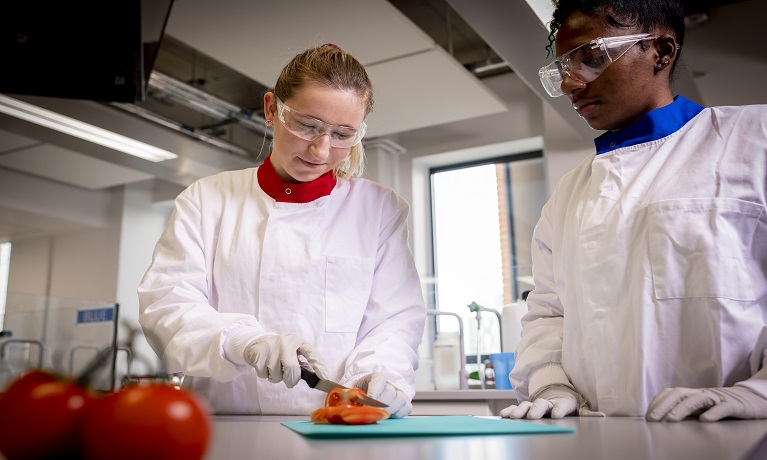Search
Obesity stigma battle just beginning for Coventry University dietetics and nutrition teams

Wednesday 03 March 2021
Press contact
On World Obesity Day, Coventry University’s academics are trying to help end the stigma around the condition.
The way obesity is often discussed has led professors across the Health and Life Sciences faculty to find new ways to help their students bust myths about the condition. That includes changing the language used, so people with obesity are no longer called obese but are told they have obesity.
Before the COVID-19 pandemic the team had been letting their students wear a body suit in the university’s occupational therapy house to help them understand what it is like to be overweight and empathise with their patients.
Carla Phillips, Course Director of BSc Hons Dietetics, says it is just one way of giving students an insight into the physical complexities of the condition.
The body suit has been brought in to help our students’ empathy with patients and to try to tackle weight stigma. They are very heavy so we get the students to put them on, walk up and down the stairs and see how difficult it is. If you have a heavy weight deposited around your waist, even simple things like tying shoelaces or walking up the stairs is very difficult. The students get hot, sweaty and breathless and their centre of gravity is off. It gets them to appreciate how difficult it is when you are overweight or obese. Our student dieticians will go out on placements and be out in clinics and will be giving advice. Dietetics students are really passionate about nutrition and healthy eating but what we need to teach them is what it’s like to really live with obesity.
Carla Phillips, Course Director of BSc Hons Dietetics
Assistant Professor in Dietetics Sally Abbott combines her university role with clinical work as an NHS weight management and bariatric dietician. She is teaching her students to tackle the stigma associated with obesity on the internet.
As dieticians our role is to also dispel the myths around nutrition and about the causation of obesity. In this modern world our students need to be able to challenge negative stigmas both in person and online. We have dedicated teaching seminars on weight stigma where we challenge our students to think about their role in society and as future healthcare professionals, and how they address weight stigma in the personal and professional lives.
As future dietitians, our students need to be confident to challenge misinformation online and with the media and ensure they are not inadvertently contributing to weight stigma. Being non-judgemental and using people-first language is the first step to addressing weight stigma in healthcare. People with obesity should not be labelled as being ‘obese’. They have a condition. They have obesity.
Sally Abbott, assistant professor in Dietetics
If you want to follow in Carla and Sally’s footsteps and learn more about Dietetics see our course details.




